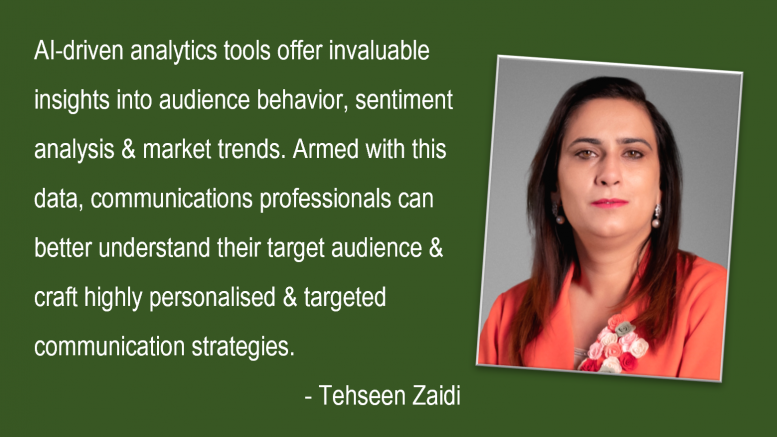The rise of Artificial Intelligence (AI) has ushered in a new era for industries worldwide, and the field of communications is no exception. As AI technology continues to advance, it presents a myriad of possibilities and challenges for communications professionals. In this article, we will delve into the transformative impact of AI on communications and explore both its advantages and disadvantages, allowing professionals to embrace its potential while being mindful of the potential pitfalls.
The pros of AI for communications professionals
AI brings several advantages to the communications industry, enhancing the capabilities of professionals in various ways. One of the most significant advantages is the automation of repetitive tasks. AI’s capacity to handle mundane activities like data entry and content distribution liberates professionals to focus on more strategic and creative aspects of their work. This newfound efficiency allows communications professionals to channel their energies into crafting compelling narratives and engaging with stakeholders.
AI-driven analytics tools offer invaluable insights into audience behavior, sentiment analysis, and market trends. Armed with this data, communications professionals can better understand their target audience, allowing them to craft highly personalised and targeted communication strategies. By analysing individual preferences and behavior, AI empowers communications professionals to create personalised content and campaigns, fostering deeper connections and boosting audience engagement.
Another significant advantage of AI is the real-time customer interaction it enables through chatbots and virtual assistants. These intelligent bots can provide instant support and information, leading to enhanced customer experience and increased brand loyalty. Furthermore, AI plays a crucial role in crisis management and reputation monitoring. Advanced sentiment analysis and media monitoring tools allow communications professionals to detect potential crisis early on and address them proactively, safeguarding the brand’s reputation.
The cons of AI for communications professionals
Despite its benefits, AI also poses some challenges that communications professionals must address. One major concern is job disruption and potential job loss specially to the writers. As AI automates certain tasks, there is a fear that communications professionals may face displacement, particularly in roles involving routine and repetitive tasks. This could lead to job losses or necessitate a shift in job descriptions, prompting professionals to adapt and upskill.
Ethical considerations arise from the widespread use of AI in communications. Privacy concerns, bias in AI algorithms, and responsible AI-generated content use are among the issues that must be carefully navigated. Striking a balance between personalised communication and respecting privacy rights is essential to maintain trust with audiences.
Moreover, while AI excels at data analysis and pattern recognition, it may struggle to replicate human creativity and emotional understanding. Communications professionals bring a unique human touch to storytelling and relationship-building, elements that AI may not fully grasp. Over-reliance on AI-generated data and insights could also stifle innovation, limiting the potential for unconventional approaches that often arise from human intuition and inspiration. Additionally, AI algorithms may sometimes misinterpret context, leading to communication errors or providing inappropriate responses. Therefore, communications professionals must carefully review AI-generated content to avoid any misunderstandings or misrepresentations.
Embracing the future: Striking a balance
To harness the full potential of AI while navigating its challenges, communications professionals must adopt a balanced approach. Instead of fearing job displacement, professionals can focus on upskilling to complement AI capabilities. Improving creative storytelling, honing interpersonal skills, and mastering AI management are all crucial aspects to excel in the AI-driven landscape.
Advocating for the ethical use of AI is paramount. Communications professionals should prioritise data privacy, address bias in AI algorithms, and uphold responsible AI implementation to maintain transparency and credibility. Rather than viewing AI as a replacement, it should be seen as a collaborative tool. By leveraging AI’s analytical prowess, professionals can augment their decision-making process and enhance the impact of their communication strategies.
While AI can provide valuable data-driven insights, professionals should prioritise creativity and the human touch in communications. Combining data-driven approaches with creative intuition can lead to powerful and resonant messaging. Striking this balance ensures that communications professionals harness the power of AI while preserving their unique contributions to the field.
The views and opinions published here belong to the author and do not necessarily reflect the views and opinions of the publisher.



Be the first to comment on "AI in communications: Unveiling opportunities and challenges for communications professionals"